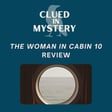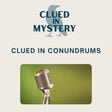
More Medical Mysteries with Daniel Kalla
This week, author Daniel Kalla joins Brook and Sarah to discuss his medical thrillers and other writing. Daniel Kalla is an internationally best-selling author of many novels, including Fit to Die, The Darkness and the Light, Lost Immunity, The Last High, and We All Fall Down. Kalla practices emergency medicine in Vancouver, British Columbia. You can find him at danielkalla.com or follow him on Twitter @danielkalla.
photo credit: Michael Bednar Photography
Discussed
Fit to Die (2023) Daniel Kalla
The Last High (2020) Daniel Kalla
High Society (2024) Daniel Kalla
Lost Immunity (2021) Daniel Kalla
The Far Side of the Sky (2012) Daniel Kalla
Robin Cook
Michael Cichton
Tess Gerritsen
For more information
Instagram: @cluedinmystery
Contact us: hello@cluedinmystery.com
Music: Signs To Nowhere by Shane Ivers – www.silvermansound.com
Sign up for our newsletter: https://cluedinmystery.com/clued-in-chronicle/
Join the Clued in Cartel: https://cluedinmystery.com/clued-in-cartel/
Transcript
This transcript is generated by a computer and there may be some mis-spellings and strange punctuation. We try to catch these before posting, but some things slip through.
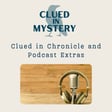
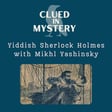
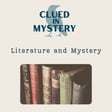
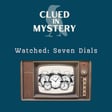
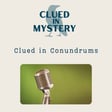
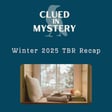
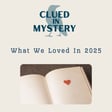
![[Re-release] Anthony Berkeley image](https://media.zencastr.com/cdn-cgi/image/width=112,quality=85/image-files/61e1c276e3ec42007857cff9/e7c778ac-a2ba-4809-9a5c-7cd39d167834.jpg)
![[Bonus] Wake Up Dead Man image](https://media.zencastr.com/cdn-cgi/image/width=112,quality=85/image-files/61e1c276e3ec42007857cff9/e276ac32-e664-464f-956c-7699bdb60aa5.jpg)
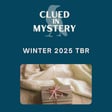
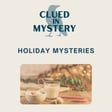
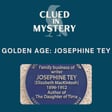
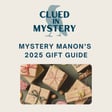
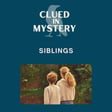

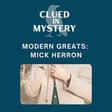
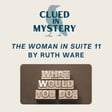
![[Bonus] Read Along: Daughter of Time image](https://media.zencastr.com/cdn-cgi/image/width=112,quality=85/image-files/61e1c276e3ec42007857cff9/b953ad72-c43e-48ca-a18a-b3c216ab90ee.jpg)
